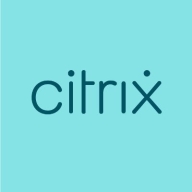

Citrix XenServer and Nutanix AHV compete in the virtualization category, with each product offering distinct advantages. Citrix XenServer seems to hold an edge with its comprehensive free edition and broad Windows support, while Nutanix AHV excels in storage integration and cost efficiency.
Features: Citrix XenServer offers a full-featured free edition, real-time performance monitoring, and strong support for Windows management via XenCenter. It also provides advanced capabilities like hot-swappable components and compatibility with various clouds. Nutanix AHV is known for its integration of storage and compute services, user-centric design, and automation features. It provides a simplified management experience through the Prism console and does not require licensing costs.
Room for Improvement: Citrix XenServer needs enhanced high-availability and clustering options, a more flexible update process, and expanded support for Linux guests. There is also room for better integration with third-party backup solutions and a more detailed self-service user portal. Nutanix AHV could improve in orchestration, automation, and response times for technical support. Enhanced integration with legacy systems and third-party software, alongside management console enhancements, are desired.
Ease of Deployment and Customer Service: Citrix XenServer offers ease of deployment and community-driven support with optional paid assistance. However, users sometimes find it difficult to obtain help due to a limited number of Citrix partners. Nutanix AHV, being open-source, avoids licensing issues, with users praising quick support resolution capabilities, although improvements in accessibility and support efficiency are needed.
Pricing and ROI: Citrix XenServer's advantage is its free version, suitable for small-scale use, though transitioning to paid versions can be costly. The benefits of virtualization are valued despite high licensing costs for advanced features. Nutanix AHV offers a free hypervisor bundled with Nutanix's platform, leading to cost savings through integrated features like de-duplication without added licensing fees. Although it has higher initial costs, its ROI potential makes it competitive for businesses seeking comprehensive solutions.
My clients generally maintain their Citrix infrastructure without shifting, suggesting stability and reliable operation as Citrix XenServer is fully established.
They do not provide adequate support for midsize businesses.
Since being acquired, Citrix's customer service has experienced delays in response time.
Their engineers are excellent and provide great supportability.
They provide prompt and quality responses.
Familiarity with Linux can enhance its performance and usability.
We can scale our systems easily without any downtime, making it a highly effective solution for dynamic environments.
Nutanix AHV Virtualization is very scalable; however, I might be underutilizing its capabilities.
The solution is very stable.
Issues such as patch delays and the OVF format challenge affect its stability rating.
I would give the stability a seven out of ten at the moment, primarily due to the issues I've had with updates.
Although the product is technically competitive, it is not widely known or used due to poor marketing.
Citrix needs to improve the hypervisor, specifically in security and performance.
This delay in patching creates risk, especially for government projects that require timely updates.
Using Lenovo hardware seems problematic with Nutanix AHV Virtualization, which demands careful consideration during updates.
These menus often show options like host, memory, and disk, however, they fail to provide insight into what's happening.
It is cheaper compared to its competitors.
The pricing and licensing policy of Citrix XenServer is not transparent and quite confusing.
This has been advantageous as it does not require additional licensing costs for the hypervisor, contributing to overall cost savings.
Other solutions like Citrix and VMware have seen a significant price increase, whereas Nutanix hasn't increased as dramatically.
The pricing was reasonable compared to other competitors, though the storage was expensive.
It provides secure access to applications and resources, which is crucial for us and our clients.
It is user-friendly and easy to deploy, making it an attractive option.
It is easier to manage than VMware in some ways, providing a good level of interaction.
The technology behind the backups is very efficient, enabling a reliable virtual environment.


Citrix XenServer is a virtualization platform used in industries such as banking, automotive, and data applications for cloud automation, server virtualization, and VDI scenarios. It supports infrastructure management, virtual machine hosting, and enterprise software deployment, reducing costs by migrating from other platforms.
As a virtualization tool, Citrix XenServer stands out for its ease of maintenance, support, scalability, and centralized management. Commonly deployed on-premises and in data centers, it provides real-time monitoring, live migration, and strong security features. With compatibility across many operating systems, users benefit from a Windows-based management interface that is easy to install and navigate. Integration capabilities with active directory, storage, and load balancing contribute to resource optimization and reliability.
What are the key features of Citrix XenServer?Implementation in banking, automotive, and data applications leverages Citrix XenServer's strengths in cloud automation and virtualization. Organizations manage resources, deploy services, and ensure stable operations within their infrastructure. The platform is used both on-premises and in data centers, aiding in areas such as cost reduction and maintenance efficiency.
We monitor all Server Virtualization Software reviews to prevent fraudulent reviews and keep review quality high. We do not post reviews by company employees or direct competitors. We validate each review for authenticity via cross-reference with LinkedIn, and personal follow-up with the reviewer when necessary.